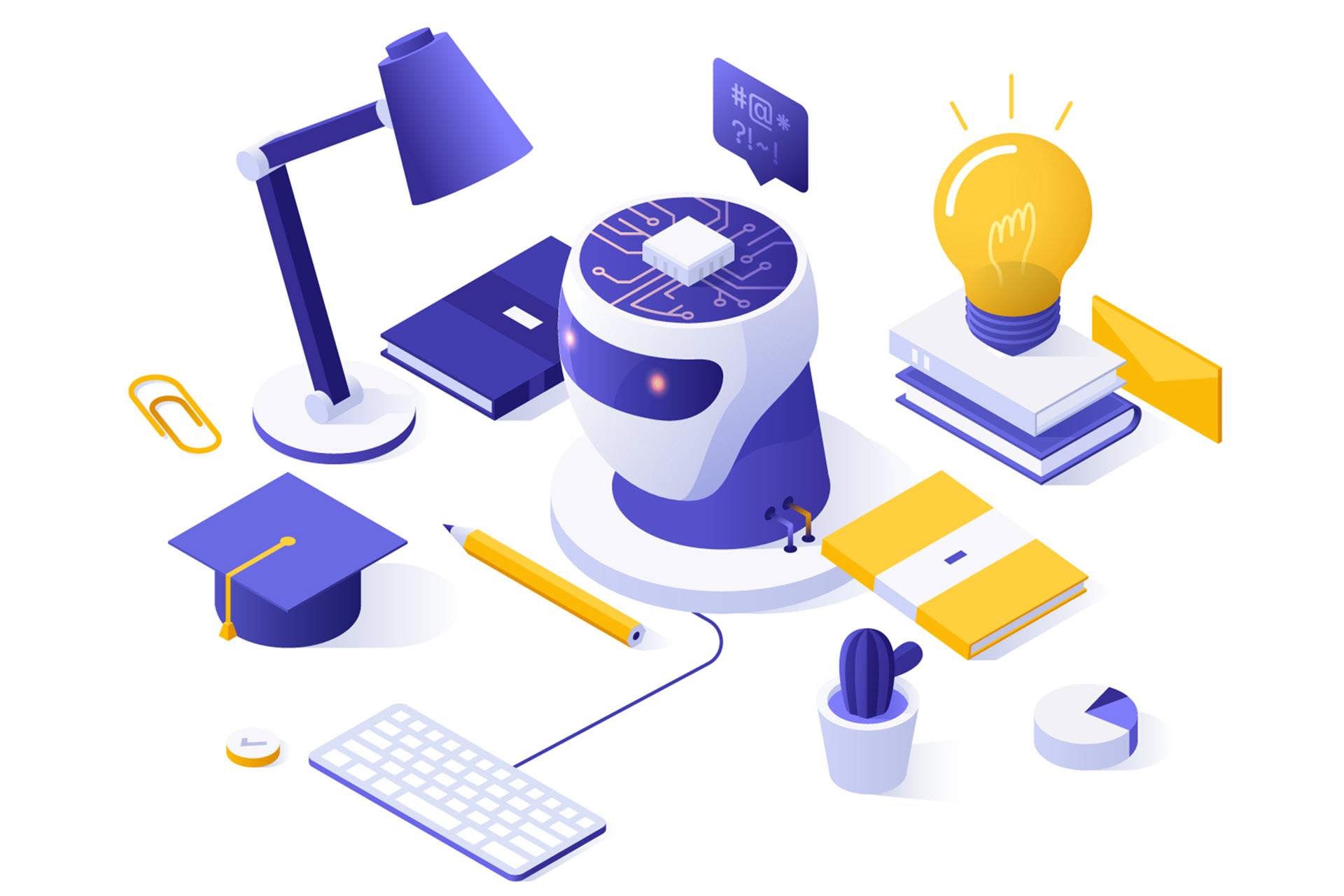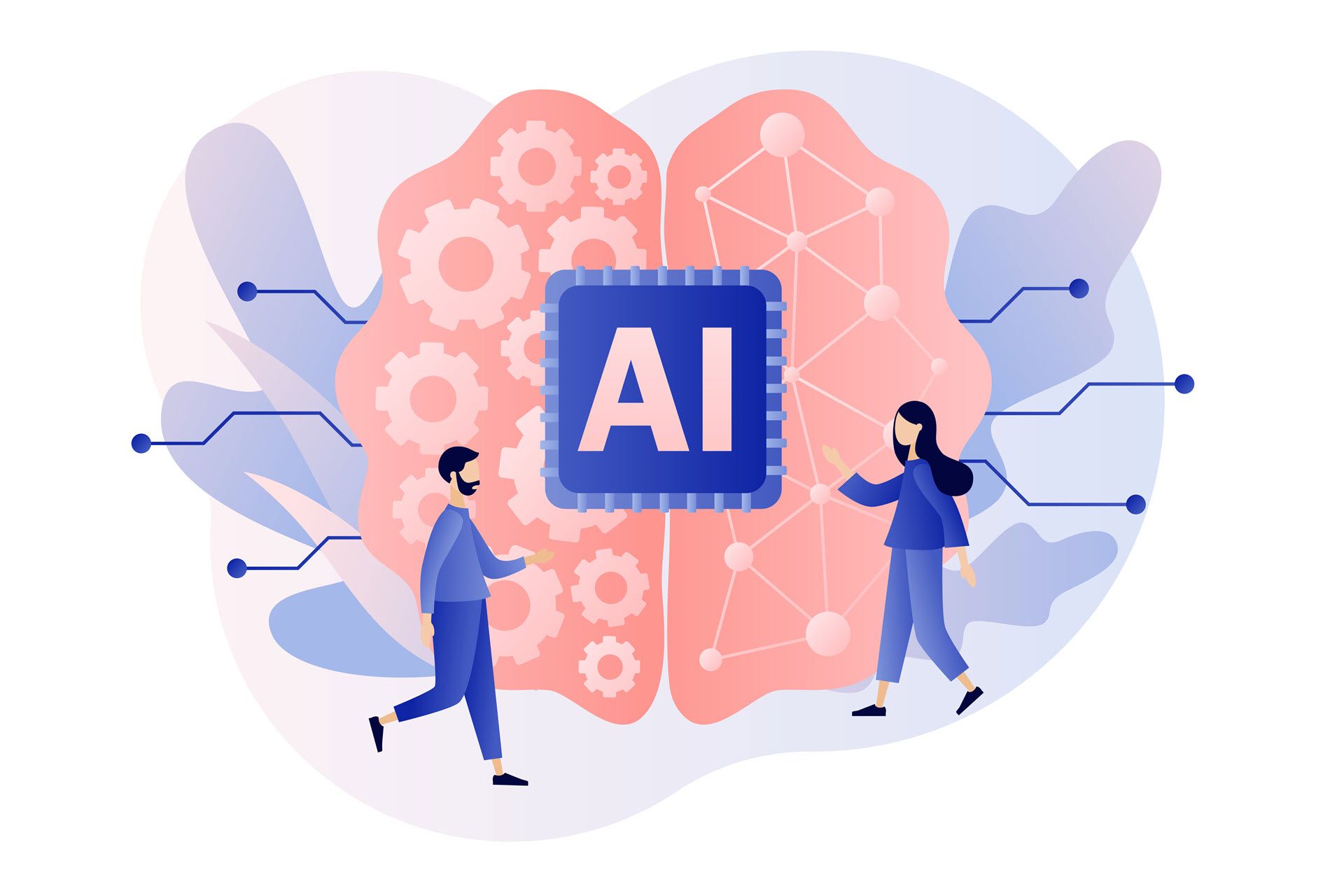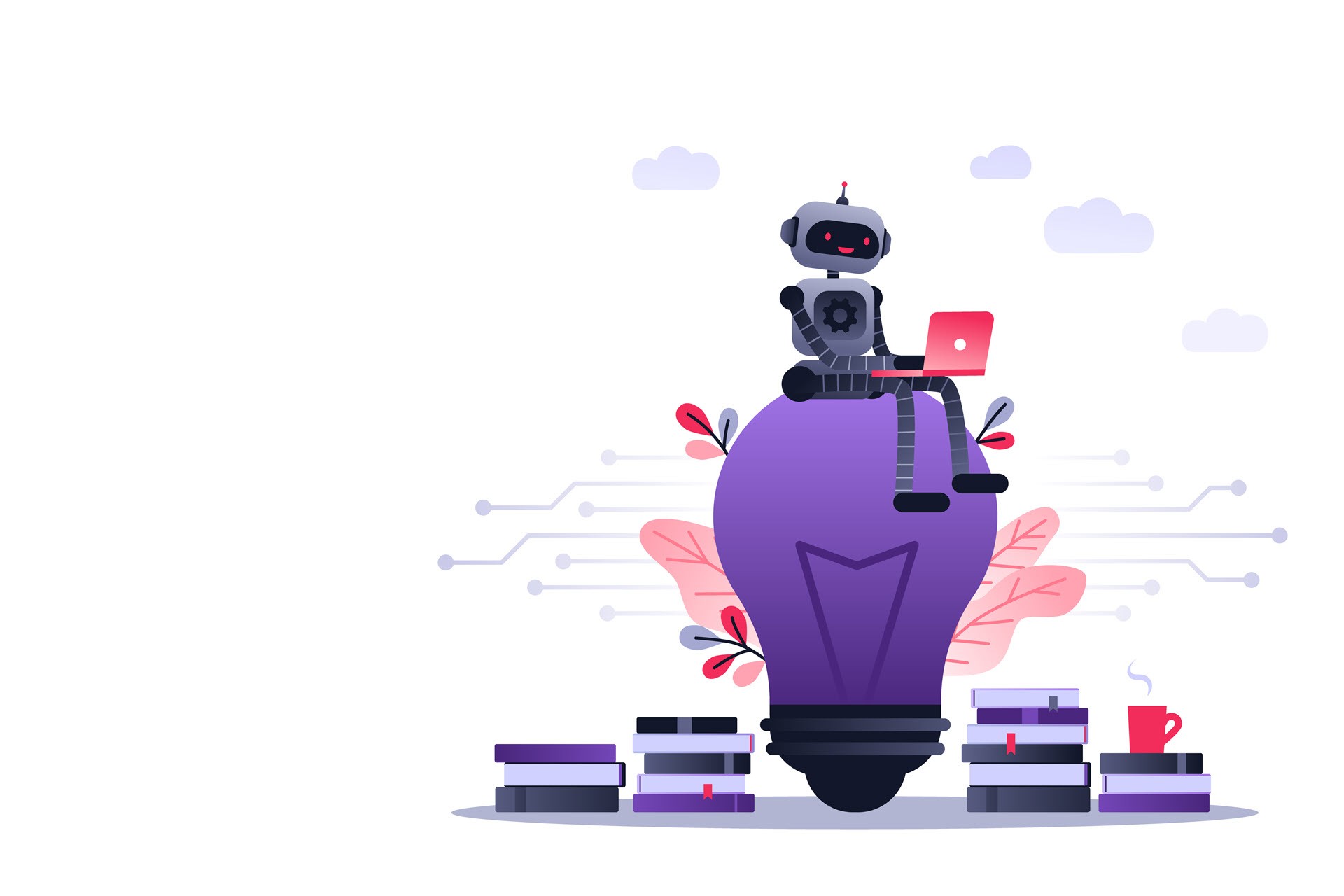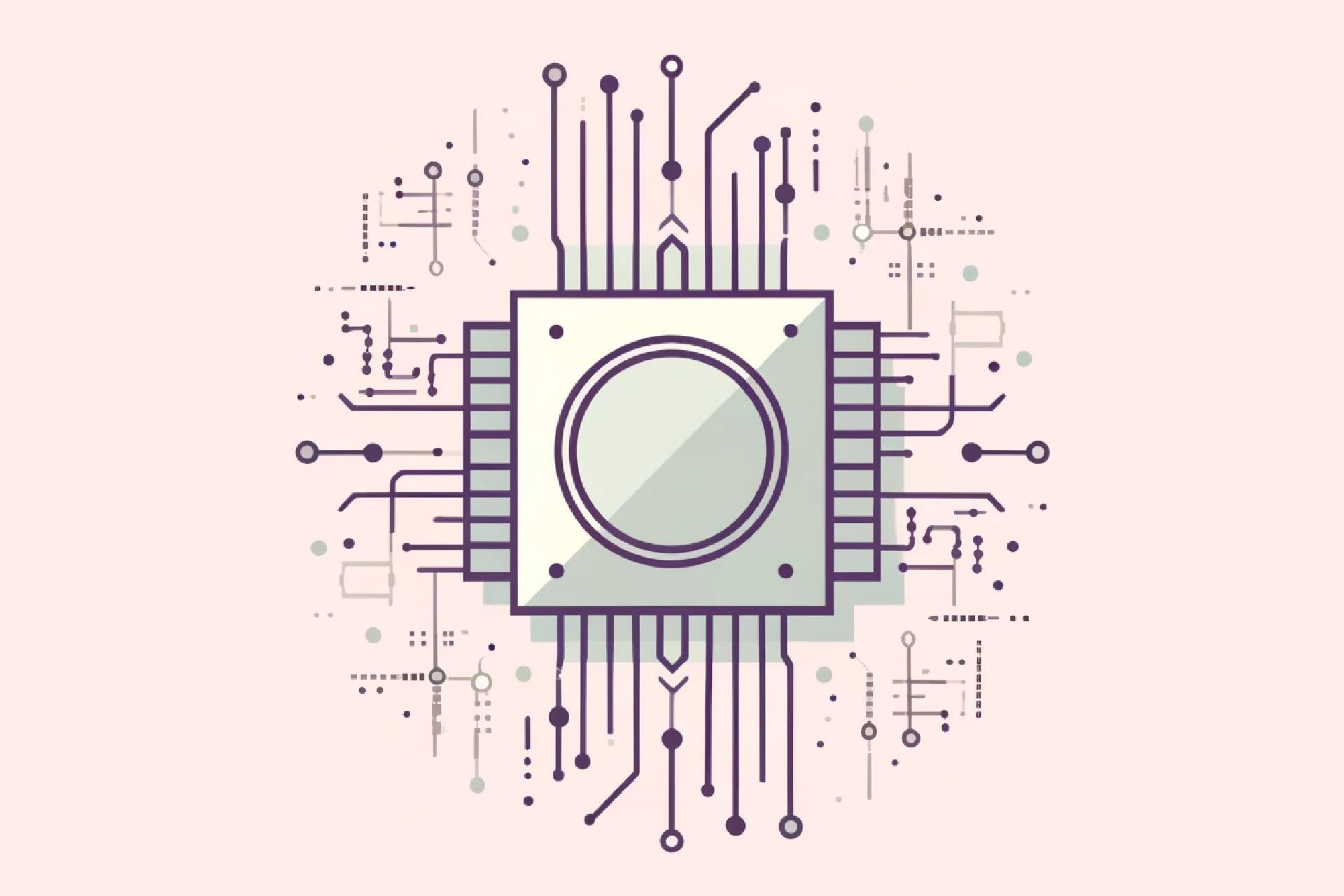Artificial intelligence (AI) has become indispensable in corporate settings. Businesses across different sectors use AI to analyze vast amounts of data, automate routine tasks, and boost the efficiency of various teams (sales, marketing, security, IT, customer support, etc.).
If you plan to start using AI at your company, you need a clear understanding of what aspects of your business AI can improve. The text below serves as a great starting point for that process.
This article explains how artificial intelligence is revolutionizing the way businesses operate and get work done. Read on to get a clear picture of how companies make the most out of this revolutionary technology.
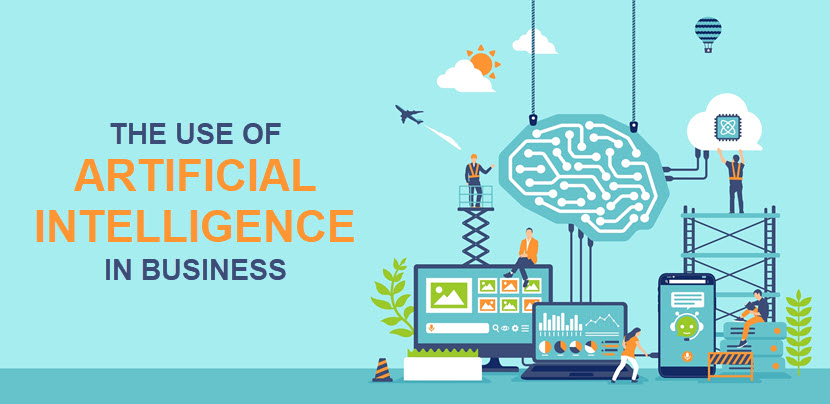
What Is Artificial Intelligence in Business?
Artificial intelligence in business is a broad term that refers to the use of AI technologies to automate, enhance, and streamline business processes.
AI encompasses a range of technologies (machine learning, natural language processing (NLP), computer vision, AI-based robotics, etc.) that can reliably perform tasks that traditionally require human oversight.
Businesses most commonly use AI for the following purposes:
- Automation of repetitive tasks. AI can automate routine and repetitive tasks like data entry, scheduling, and customer service interactions. Automation makes these tasks more consistent and reduces the burden on human workers.
- In-depth data analysis. AI systems can analyze vast amounts of data quickly and accurately to provide insights that aren't visible to human analysts.
- Risk management. Many businesses use AI to assess risks and detect malicious activity by analyzing patterns and anomalies in available data.
- Process optimization. Companies often use AI to identify inefficiencies and optimize business processes across various departments.
- Decision support. AI can assist in decision-making processes by providing data-driven insights to improve the quality and speed of business decisions.
Artificial intelligence is valuable in most (if not all) business areas. AI enables companies to speed up customer service, maximize sales, boost cybersecurity, optimize supply chains, free workers from mundane tasks, and improve existing products.
Want to learn exactly how AI works? Our guides to neural networks and deep nets (DNNs) provide an in-depth look at how AI simulates human cognitive processes.
Benefits of Using Artificial Intelligence in Business
Integrating AI into business processes offers substantial benefits, from cost savings and increased efficiency to better customer experiences and enhanced innovation. Here are the key advantages of using artificial intelligence in business:
- Increased work efficiency and productivity. AI performs routine and repetitive tasks faster and more precisely than humans. While AI handles mundane and time-consuming tasks, the human workforce gets to focus on higher-value activities.
- Valuable insights. AI systems can process and analyze large volumes of data more quickly and accurately than humans. This capability enables businesses to gain a deeper understanding of their data and leverage this information for strategic advantage.
- Improved customer relationships. AI-powered chatbots and virtual assistants provide instant and personalized customer support. AI can also analyze customer data to deliver tailored marketing content and product recommendations, improving customer engagement and retention rates.
- More reliable decision-making. AI systems can analyze vast amounts of data in real time, providing valuable insights for better decision-making. These insights help businesses make better decisions about customers, offerings, and directions for growth.
- Easier innovation. AI drives innovation by enabling new business models, products, and services. Companies that leverage AI can gain a competitive edge by being more agile, responsive, and forward-thinking.
- Cost savings. Using AI to automate repetitive tasks and optimize processes reduces labor, operational, and maintenance costs. Additionally, AI leads to more efficient resource allocation, which further contributes to cost reduction and improves profitability.
Check out the SpyFu case study to see how moving AI workloads to pNAP's Bare Metal Cloud enabled the company to cut cloud costs by 50% and eliminate performance bottlenecks.
Challenges of Using Artificial Intelligence in Business
Despite AI's numerous benefits, companies must navigate several challenges to implement this technology effectively. Here are the most notable problems of using artificial intelligence in business:
- Data privacy and security concerns. AI systems require vast amounts of data to function effectively. Ensuring the privacy and security of this data is crucial, especially for businesses that fall within the scope of data regulations such as CCPA and GDPR. Adopters must implement robust data protection measures to prevent breaches and comply with legal standards.
- Lack of a skilled workforce. There is a high demand for data scientists and AI specialists required to implement AI-based solutions. Many businesses struggle to hire and retain the necessary employees.
- Input data availability. AI systems rely heavily on high-quality data for training and operation. Incomplete, biased, or inaccurate data leads to poor AI performance and unreliable outcomes.
- Organizational resistance. Adopting AI necessitates significant changes in business processes and organizational culture. Resistance to change from employees and management often impedes AI initiatives.
- Integration with existing systems. Integrating AI with legacy systems and existing business processes is often complex and challenging. Ensuring seamless integration without disrupting operations requires careful planning and execution.
- High costs. AI solutions are expensive to acquire, integrate, and maintain, especially if you run AI models on on-prem servers. Adopters must invest in suitable AI processors and accelerators to ensure sufficiently powerful hardware.
GPU computing is emerging as one of the most cost-effective methods for processing compute-hungry AI and ML models. Check out our GPU servers page to see how well your AI workloads would run on dual Intel Max 1100 GPUs.
Use Cases of AI in Business
AI is transforming various business areas by enhancing efficiency and improving decision-making. Below is a detailed look at the most common uses of artificial intelligence in business, broken down by each department.
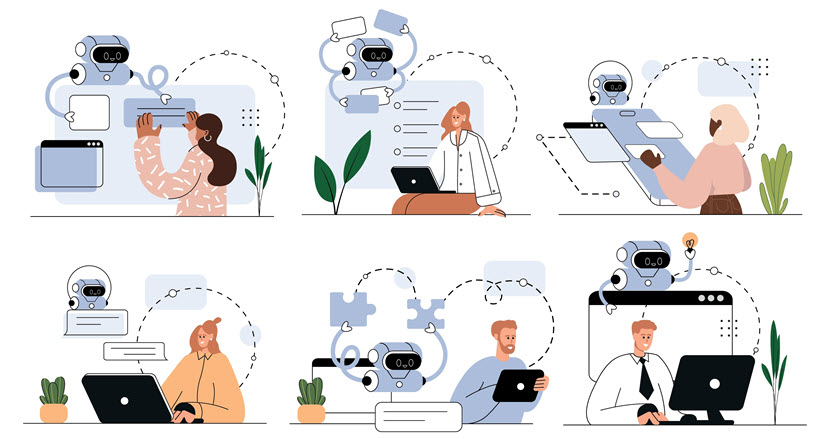
Marketing
AI is revolutionizing marketing by providing tools and insights that enhance the effectiveness of marketing strategies and improve customer engagement.
The most impactful aspect of AI in marketing is the capability to analyze customer data and create personalized content tailored to the user's preferences. This content adapts in real time based on user interactions and enables businesses to ensure highly engaging emails and landing pages.
AI models also help businesses analyze customer behavior to identify patterns that indicate a high likelihood of churn. By recognizing these signs early on, businesses get to implement retention strategies to keep customers engaged.
Here are a few other popular uses of AI in marketing:
- A/B testing and optimization. AI algorithms automatically test different versions of marketing content and optimize them for maximum effectiveness.
- Analysis of customer interactions. AI tracks and analyzes customer interactions across multiple touchpoints, such as websites, social media, and customer service channels.
- Ad performance optimization. AI can continuously monitor click-through rates and automatically adjust ad targeting or placement to maximize performance.
- Automated buying of digital ads. AI-powered advertising platforms use ML algorithms to automatically buy and place digital ads across various channels.
- Cross-selling and upselling. Marketing teams often use AI to analyze customer purchase history and behavior. This helps them identify optimal complementary products (cross-selling) and higher-value alternatives (upselling).
Many marketing specialists use AI for social media management. These AI tools automatically create, schedule, and post content on social media platforms at optimal times.
Our article on social media security provides an in-depth guide to keeping your business safe on social media platforms.
Human Resources (HR)
AI technologies enable businesses to streamline and enhance all major HR processes. Here are the most common applications of AI within HR teams:
- Recruitment and candidate screening. AI-powered tools can analyze resumes, cover letters, and job applications to identify suitable candidates. Many AI tools can also conduct initial screenings through virtual interviews.
- Employee turnover analytics. By analyzing historical data, AI platforms predict which employees are at risk of leaving the company. This information allows HR departments to proactively retain talent through interventions like personalized training, career development, or compensation adjustments.
- Performance management. HR teams often utilize AI tools to analyze employee performance data, such as productivity metrics, project outcomes, and peer feedback. AI platforms process this information to identify areas for improvement and inform decisions regarding promotions, bonuses, or disciplinary actions.
- Employee onboarding. Many businesses use AI chatbots to guide new hires through the onboarding process. These chatbots answer common questions, provide information about company procedures, and help with paperwork completion.
- Engagement assessments. AI platforms can gather employee feedback through surveys, emails, or communication platforms. By analyzing this data, HR departments gauge employee satisfaction, identify areas of concern, and take steps to improve overall engagement.
Some businesses also use AI algorithms to forecast future staffing needs based on historical data, seasonal trends, and projected business growth. This analysis helps HR departments optimize workforce allocation and minimize labor costs while ensuring adequate staffing.
Customer Support
Customer support teams use AI to automate repetitive tasks, such as updating customer information, processing refunds, and tracking orders. Artificial intelligence also enables businesses to create voice-based or text-based chatbots capable of:
- Providing continuous customer service. AI-driven chatbots provide round-the-clock support, handling routine inquiries and guiding customers through common issues. This 24/7 availability ensures customers receive immediate assistance regardless of when they contact the business.
- Handling multiple queries. AI-powered chatbots can manage multiple customer interactions simultaneously. This capability reduces wait times and improves customer satisfaction during peak periods.
- Communicating in a human-like fashion. AI chatbots use natural language processing to understand and respond to customer inquiries in a conversational manner. NLP makes interactions feel more natural and human-like.
As an extra benefit, AI-powered chatbots are excellent at gauging user sentiment and emotion. AI analyzes customer feedback from various channels (emails, chats, social media) to help businesses understand how customers feel about products or services.
Another popular AI use case in customer support is automated ticketing systems. AI-driven ticketing systems enable customers to find solutions to their problems independently, which significantly reduces the number of support tickets human workers must resolve.
AI can also predict potential customer-related issues before they arise by analyzing patterns in user behavior and past interactions. These insights allow businesses to offer proactive support, such as notifying customers of potential delivery delays or suggesting troubleshooting steps for common problems.
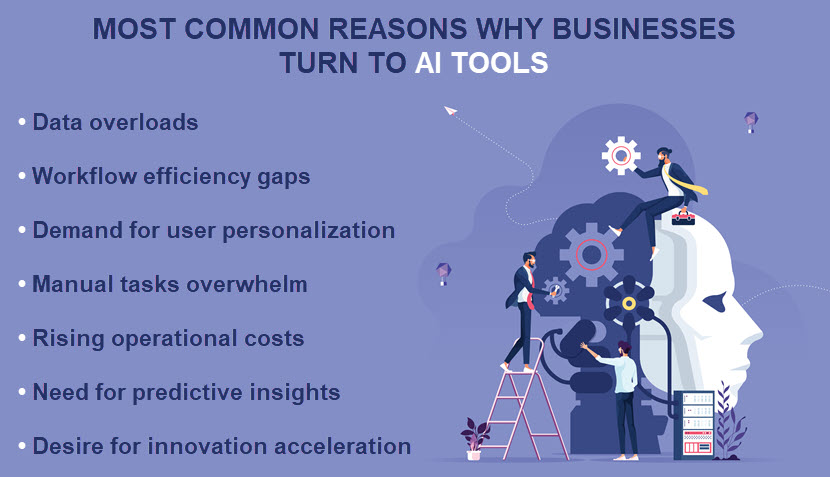
Information Technology (IT)
By leveraging AI technologies, businesses improve the overall efficiency of their IT department and reduce costs. Here's an overview of the most common ways businesses use AI for IT purposes:
- Network management. Many businesses use AI to monitor network traffic and identify unusual patterns and anomalies. AI is excellent at optimizing network performance by dynamically adjusting parameters to minimize downtime and eliminate bottlenecks.
- IT support automation. AI systems are great at diagnosing and resolving common IT issues like software glitches or connectivity problems. Automated troubleshooting reduces the need for human intervention and speeds up resolution times.
- IT operations. ITOps teams use AI tools to automate routine and time-consuming tasks like system updates, backups, and configuration management.
- DevOps. DevOps teams often use AI to automate deployment processes, monitor application performance, and gain insights into the workings of CI/CD pipelines.
- Software development and testing. Developers use AI to identify bugs, vulnerabilities, and performance issues within code. Many teams also use AI to run automated performance, integration, and unit tests.
- Virtual IT assistants. Many IT teams use AI-powered virtual assistants to help employees handle routine support requests, such as password resets and software updates. These assistants improve user experience and reduce the workload for the IT staff.
- Policy enforcement. Businesses often use AI to ensure compliance with IT policies and regulations by monitoring employee activities and enforcing rules. For example, AI can detect unauthorized access attempts or non-compliant software installations and take immediate corrective action.
- Virtualization and cloud management. AI platforms help IT teams optimize the allocation and utilization of cloud computing resources. AI analyzes cloud usage patterns and provides recommendations for lowering cloud costs, such as rightsizing instances or deleting underutilized resources.
Struggling with high cloud bills? Here are 14 cloud cost management tools that help get a tighter grip over cloud-related expenses.
Security
AI tools enable security teams to enhance the detection, prevention, and response to a wide range of threats. By leveraging AI solutions, businesses significantly improve their security posture, protect sensitive data, and ensure the safety of digital assets.
One of the main selling points of AI in security is that AI-based tools rely on User Behavior Analytics (UBA) to establish a realistic baseline of regular activity. Deviations from this baseline trigger alerts for potential cyber attacks. Common deviations from the baseline include:
- Unusual login times.
- Multiple failed login attempts.
- Suspicious access patterns.
- Logins or access attempts from unusual geographic locations.
- Unusual data transfers.
- Anomalous file modifications.
- Irregular application usage.
- Unexpected privilege escalation.
AI tools are excellent at detecting new, previously unknown malware strains since AI security platforms do not rely solely on signature-based detection. These tools are also great at identifying phishing attempts within emails and other communications.
Another way AI helps security teams is by automating incident response procedures. AI automates responses to security incidents by taking either preset or self-determined actions, such as isolating affected network segments or blocking malicious IP addresses.
Smart use of AI significantly improves data protection. Many businesses use AI to automate the encryption and masking of sensitive data, ensuring files are safe both at rest and in transit. AI-powered data loss prevention (DLP) systems, which monitor data transfers for unauthorized access and leakage, are also gaining popularity.
Sales
Sales teams use AI to analyze vast amounts of data from various sources (social media, website interactions, CRM systems, etc.) to identify potential leads. This information ensures a steady flow of high-quality leads for sales teams.
Once AI models identify potential leads, they assess the likelihood of converting them into customers by analyzing historical data and identifying patterns. Sales teams then get to prioritize high-potential leads, increasing the efficiency of sales efforts.
Some businesses even use AI to automate entire steps in the outreach process, such as:
- Sending custom follow-up emails.
- Scheduling appointments.
- Generating and sending proposals.
- Asking for feedback and then updating records.
- Creating dynamic sales content.
AI also helps optimize the sales funnel by identifying where potential leads drop off and suggesting improvements. By addressing these bottlenecks, businesses improve lead conversion rates and streamline the sales process.
Customer segmentation is another common use of artificial intelligence for sales purposes. AI algorithms segment customers based on their behavior, preferences, and demographics. Accurate segmentation allows sales teams to offer personalized solutions and offers, which improves the likelihood of conversion.
AI platforms also help teams with accurate sales forecasting. AI-driven forecasting models predict future sales trends based on historical data, market conditions, and patterns in sales data. These insights help businesses set sales goals, adjust their strategies, and allocate resources more effectively.
Our article on artificial intelligence examples provides an in-depth look at the most popular uses of AI across major industries.
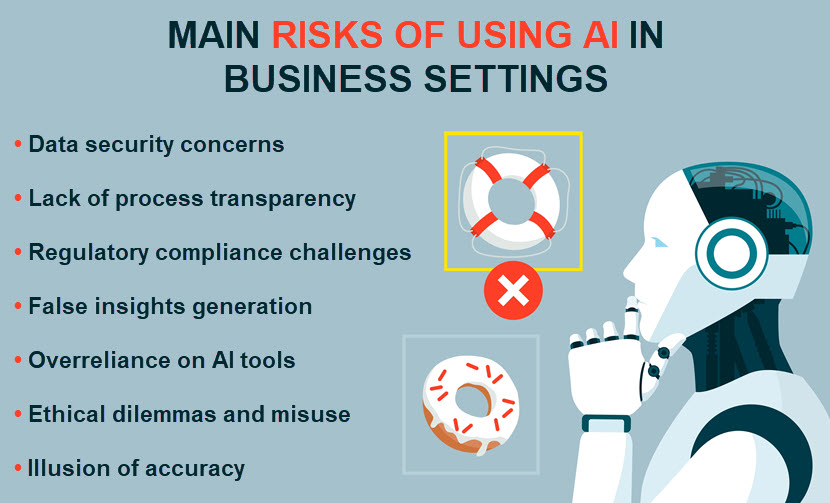
Product Development
AI helps businesses speed up innovation, improve product quality, and reduce time to market (TTM). Here are the main ways businesses use AI for product development:
- Idea generation and market research. Many companies use AI to analyze market trends and consumer behavior to identify emerging needs and preferences. This information helps generate innovative product ideas that align closely with market demands.
- Competitive analysis. AI tools can gather and analyze data on competitors' products, strategies, and performance. This analysis helps identify gaps in the market and opportunities for differentiation.
- Design and prototyping. AI algorithms automatically generate a wide range of design options based on specific constraints and requirements. This capability allows designers to explore out-of-the-box solutions and experiment with product designs.
- Product optimization. AI can analyze product performance data to identify potential areas for improvement. For example, AI can help teams improve software applications by drawing conclusions from user interactions and feedback.
- Virtual simulations. AI-driven virtual simulations allow businesses to test and refine product designs in a virtual environment. Virtual simulations reduce the need for physical prototypes and speed up the development process.
- Research automation. AI enables businesses to automate routine research tasks, such as data collection and analysis, freeing researchers to focus on more complex and creative aspects of product development.
- QA and testing. AI automates various quality assurance processes, such as functional, performance, and stress testing. Automatic tests ensure that products meet quality standards and perform reliably.
Our article on automated security testing takes you through everything a business owner must know about auto-testing.
Get on Board with the AI Trend
The future of artificial intelligence in business looks promising, with advancements in technology likely to bring even more applications in the future. As AI continues to evolve, organizations that integrate AI into their operations are bound to gain a decisive competitive edge. Use what you learned here to start making AI implementation plans that will help you boost productivity and improve your bottom line.
